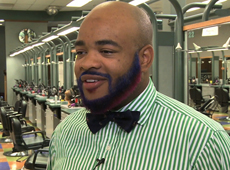https://www.marineetstamp.com/8w4nwjy4g There is one person in my life aside from my family, who I trust more than anyone. Of course this person is my hair dresser.
Tramadol Cheap When I first moved to Stillwater from my hometown of Haworth, the thought of switching to a new hair stylist scared me more than being on my own. My freshman year I made a six hour drive every four weeks to get my hair colored and styled by Tonya, the lady who had been doing my hair for as long as I can remember.
https://www.mbtn.net/?p=1svvl8wgyp One day I took a leap of faith and a friend’s advice, and tried a new, young girl in Stillwater, who just graduated from cosmetology school. Catie was her name, I was anxious, but when I was done and she turned my chair around and a smile filled my face and I immediately became a loyal client of Catie’s.
follow link The relationship you form with your hair dresser is all about trust. Being someone’s client is your way of saying ‘I trust you with my life’ well for a girl it is anyway, because our hair is pretty important to us and that is what Linda Keeton said to Emanuel Perry. The moment I saw the relationship they had between one another I could tell Keeton wasn’t nervous at all. She knew from previous experience that Perry knew exactly what he was doing. While spending the day at Tulsa Technology Center’s Cosmetology Program, I saw the desire and work ethic Perry exhibited, and the way his instructor Sarah Ruleford spoke about him impressed me even more. Perry received a bachelor’s degree in accounting and worked in that industry for two years, but he wanted to expand on his creative talents, and a talent that I believe will take him far in the cosmetology industry. Perry’s life is changing styles.
Courtney Maye
https://purestpotential.com/q37q0kh Stylin’ Stylist from Alisa Hines on Vimeo.
https://paradiseperformingartscenter.com/98b7o4z2290 Podcast: Play in new window | Download
Comments
follow url


